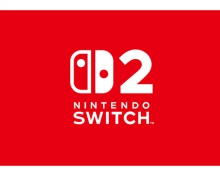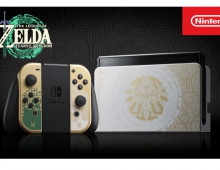
Nintendo Delays GameCube in Japan
Nintendo is delaying the introduction of its GameCube video-game console in Japan by two months until Sept. 14, the game maker said.
The machine, meant to rival Sony 's PlayStation2 was to go on sale in Japan in July. The company still plans to introduce it in the United States before Christmas. Nintendo president Hiroshi Yamauchi played down the move, even refusing to acknowledge it as a delay, and was vague when questioned by reporters about the reasons. He would only say that it would be embarrassing if Nintendo could not keep up a constant flow of shipments… That remark seemed to hint at a possible worry about a parts shortage, which hurt the launch of the PlayStation2.
Yamauchi acknowledged it will be a serious blow to Nintendo if response to the GameCube is poor at the Electronic Entertainment Expo in Los Angeles next month, although he appeared confident that reception would be positive.
Nintendo, the Kyoto-based company behind the Mario and Pokemon games, has scored successes with its less expensive and less sophisticated Game Boy series, including the revamped Game Boy Advance that went on sale last month in Japan. The Game Boy Advance is slated for sale the United States in June.
But Nintendo has had problems making a profit with its more sophisticated machine, the Nintendo 64, because of the greater money and time required to develop games for it. The company plans to announce the retail price of the GameCube, as well as initial shipment and production plans, next month, Yamauchi said.
Also, Nintendo revised its earnings forecast for the fiscal year that ended last month. A gain of about 60 billion yen ($488 million) in foreign exchange-related profits because of a weaker yen lifted net profits to a record high of 95 billion yen ($773 million), up 22 percent from the prior estimate and 69 percent higher than a year ago.
Nintendo said it expects to post group sales of 462.5 billion yen ($3.8 billion), down 7.5 percent from the previously projected 500 billion yen ($4 billion) because of delayed shipments of Game Boy to Europe.
The new forecast is down 13 percent from the 530 billion yen ($4.3 billion) for the previous fiscal year.
The machine, meant to rival Sony 's PlayStation2 was to go on sale in Japan in July. The company still plans to introduce it in the United States before Christmas. Nintendo president Hiroshi Yamauchi played down the move, even refusing to acknowledge it as a delay, and was vague when questioned by reporters about the reasons. He would only say that it would be embarrassing if Nintendo could not keep up a constant flow of shipments… That remark seemed to hint at a possible worry about a parts shortage, which hurt the launch of the PlayStation2.
Yamauchi acknowledged it will be a serious blow to Nintendo if response to the GameCube is poor at the Electronic Entertainment Expo in Los Angeles next month, although he appeared confident that reception would be positive.
Nintendo, the Kyoto-based company behind the Mario and Pokemon games, has scored successes with its less expensive and less sophisticated Game Boy series, including the revamped Game Boy Advance that went on sale last month in Japan. The Game Boy Advance is slated for sale the United States in June.
But Nintendo has had problems making a profit with its more sophisticated machine, the Nintendo 64, because of the greater money and time required to develop games for it. The company plans to announce the retail price of the GameCube, as well as initial shipment and production plans, next month, Yamauchi said.
Also, Nintendo revised its earnings forecast for the fiscal year that ended last month. A gain of about 60 billion yen ($488 million) in foreign exchange-related profits because of a weaker yen lifted net profits to a record high of 95 billion yen ($773 million), up 22 percent from the prior estimate and 69 percent higher than a year ago.
Nintendo said it expects to post group sales of 462.5 billion yen ($3.8 billion), down 7.5 percent from the previously projected 500 billion yen ($4 billion) because of delayed shipments of Game Boy to Europe.
The new forecast is down 13 percent from the 530 billion yen ($4.3 billion) for the previous fiscal year.





















